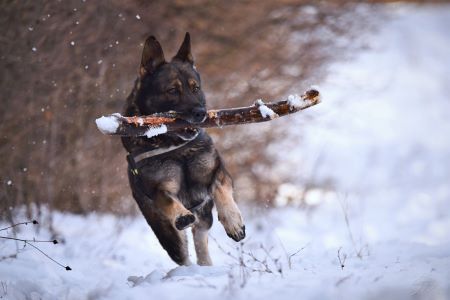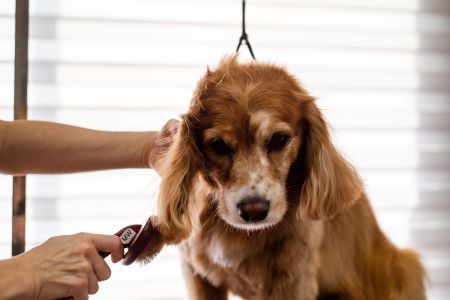Understanding Kennel Cough: Causes, Symptoms, and Treatment
Kennel cough, scientifically known as infectious tracheobronchitis, is a common respiratory infection among dogs. It is highly contagious and often spreads in places where dogs congregate, such as kennels, dog parks, and grooming salons. While kennel cough is usually not a severe condition, it can be distressing for both dogs and their owners.
Causes of Kennel Cough
Kennel cough is primarily caused by a combination of infectious agents, with the most common culprits being the bacteria Bordetella bronchiseptica and the canine parainfluenza virus. Other factors that may contribute to the development of kennel cough include canine adenovirus, mycoplasma, and even the presence of environmental irritants such as dust and smoke.
The infectious agents responsible for kennel cough are highly resilient and can survive in the environment for an extended period. Dogs can contract kennel cough through airborne droplets produced by infected dogs when they cough or sneeze. Additionally, the infection can spread through direct contact with contaminated surfaces, such as water bowls and toys.

What Home Remedy can I Give my Dog for Coughing?
Symptoms of Kennel Cough
Recognizing the symptoms of kennel cough is crucial for early detection and effective management. The most common signs of kennel cough include:
1. Persistent Coughing:
- Dogs with kennel cough often exhibit a dry, honking cough that may sound like they have something stuck in their throat.
- The coughing can be triggered by excitement, physical activity, or pressure on the trachea, such as with the use of a collar.
2. Sneezing and Nasal Discharge:
- Kennel cough can cause dogs to experience sneezing and a clear nasal discharge.
- The discharge may become thicker and more pronounced as the infection progresses.
3. Mild Fever:
- Infected dogs may develop a mild fever, which can contribute to lethargy and a decreased appetite.
4. Watery Eyes:
- Some dogs with kennel cough may experience watery or teary eyes as a result of the infection.
5. Lethargy and Reduced Appetite:
- Kennel cough can cause general discomfort and lead to lethargy and a decreased interest in food.
6. In severe cases:
- Pneumonia can develop, especially in puppies, elderly dogs, or those with weakened immune systems.

Diagnosis of Kennel Cough
If a dog displays symptoms of kennel cough, it is essential to seek veterinary attention for a proper diagnosis. Veterinarians typically diagnose kennel cough based on clinical signs and a thorough examination of the dog’s medical history. In some cases, additional tests such as blood work, chest X-rays, or tracheal washings may be recommended to rule out other respiratory conditions.
Treatment Options for Kennel Cough
While kennel cough is often a self-limiting condition that resolves on its own, veterinary intervention may be necessary, especially in severe cases or when complications arise. The following are common treatment options for kennel cough:
1. Antibiotics:
- If the cause of kennel cough is bacterial, such as Bordetella bronchiseptica, antibiotics may be prescribed to target the infection.
2. Cough Suppressants:
- Cough suppressants can provide relief by reducing the urge to cough, allowing the irritated respiratory tract to heal.
3. Anti-Inflammatory Medications:
- Nonsteroidal anti-inflammatory drugs (NSAIDs) may be prescribed to alleviate fever, reduce inflammation, and relieve discomfort.
4. Isolation and Rest:
- Infected dogs should be isolated from other dogs to prevent the spread of the infection.
- Adequate rest is crucial for a speedy recovery, and physical activity should be limited during the healing process.
5. Humidification:
- Humidifying the air can help soothe the respiratory tract and ease coughing.
6. Vaccination:
- Prevention is key, and vaccinating dogs against common pathogens that cause kennel cough can significantly reduce the risk of infection.

Professionally Grooming Your Poodle at Home Step by Step Guide
Preventive Measures
Preventing kennel cough involves implementing various strategies to minimize the risk of exposure. These preventive measures include:
1. Vaccination:
- Regular vaccination against Bordetella bronchiseptica and other pathogens is a cornerstone in preventing kennel cough.
- Vaccination is especially crucial for dogs that frequently interact with other dogs in social settings.
2. Hygiene Practices:
- Ensuring cleanliness in kennels, grooming facilities, and other areas where dogs gather is essential to reduce the transmission of infectious agents.
3. Isolation of Infected Dogs:
- If a dog is diagnosed with kennel cough, isolating them from healthy dogs is crucial to prevent the spread of the infection.
4. Avoiding Overcrowded Places:
- Limiting a dog’s exposure to crowded places, especially during peak periods, can help minimize the risk of infection.
5. Proper Ventilation:
- Ensuring proper ventilation in enclosed spaces can reduce the concentration of airborne pathogens.
Kennel cough is a common and often uncomplicated respiratory infection in dogs. While it can be distressing for both pets and their owners, timely veterinary intervention and proper management can lead to a full recovery. Understanding the causes, symptoms, and treatment options for kennel cough empowers dog owners to take proactive measures in preventing and addressing this contagious condition. Through vaccination, hygiene practices, and responsible pet ownership, the risk of kennel cough can be significantly reduced, promoting the health and well-being of our canine companions.

